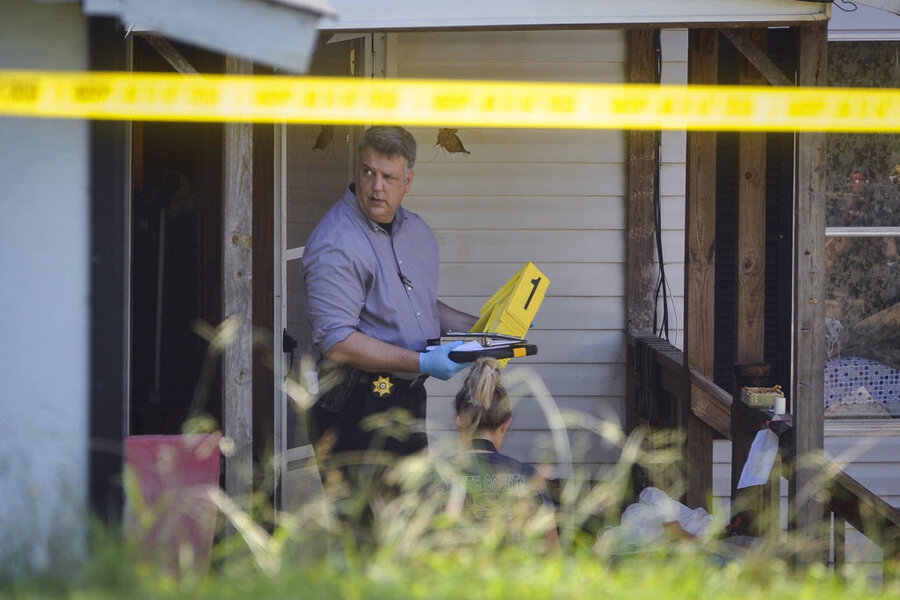Georgia murder-suicide underscores challenge of domestic violence intervention
Loading...
The tragic case of a murder-suicide in Georgia a day after the police visited the family in response to a domestic violence call, raises questions about how effectively authorities can prevent such incidents.
On Wednesday Matthew Fields killed his wife, Rebecca Manning, and her two 8- and 9-year-old sons, before fatally shooting himself, in Suwannee, Ga., according to the Forsyth County Sheriff's Office. He also shot and wounded Ms. Manning’s father who is now in hospital and remains in critical condition.
The night before the shooting, sheriff’s deputies visited the family after receiving a domestic violence call, Maj. Rick Doyle told the Associated Press. He said that Mr. Fields was not home during the visit and those around were uncooperative. With no signs of a fight, there was nothing the deputies could do, he added.
Unfortunately, many instances of child deaths relating to neglect or abuse come after authorities have already become aware that they may be living in a dangerous situation, Michael Petit, president of the Every Child Matters Education Fund in Washington, wrote in 2013 in The Huffington Post. “The existing civil and criminal proceedings meant to protect them were inadequate,” he wrote.
Intervention in possible cases of domestic violence is a delicate decision for members of law enforcement and child protective services. As Frank Rotondo, executive director of the Georgia Association of Chiefs of Police, notes if there are no signs of violence and "everyone there says nothing is going on, you just can't pick somebody and say, 'You look like the instigator,' and arrest the person."
Officers are trained to ask specific questions when responding to a domestic violence call, Deborah Monley operations manager for Georgia Coalition Against Domestic Violence told the Associated Press. "If they don't get that reaction and there are no signs of violence, officers' hands are tied."
The Christian Science Monitor’s Patrik Jonsson reported last September that 15,510 American kids died from abuse and neglect between 2001 and 2010, while state social service agencies received 25 million child abuse complaints in the same time span. “To some child advocates, those numbers suggest a crisis that needs a federal solution, especially since states are often aware of what's going on in the homes,” he wrote.






